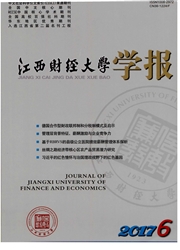

 中文摘要:
中文摘要:
在现行企业年金纳税递延制度下,通过将遗产动机与遗产税引入一般均衡两期世代交叠模型,以无税收延迟经济体为基准,研究了是否征收遗产税、遗产税税率变化如何影响企业年金税收递延这一制度的经济效应,即如何影响产出水平、资本存量、工资水平、消费水平等经济变量的均衡解。研究表明:企业年金税收延迟能够在提高资本存量的同时增加产出,降低利率的同时提高工资,增加储蓄的同时提高两期消费,改善个人福利水平;征收遗产税会降低企业年金税收延迟对经济的正面刺激作用,遗产税税率越高对税收延迟的抵消作用越强,当遗产税高到一定程度时,税收延迟反而会降低社会福利水平。
 英文摘要:
英文摘要:
Under the current system of deferred tax on enterprise annuity, taking the economic entity with no deferred tax as the baseline and introducing the bequest motive and the bequest taxation into the general equilibrium two-period overlapping-generations model, this paper studies the economic effect of how bequest taxation and the changes of its tax rates affecting the system of deferred tax on enterprise annuity, i.e. the equilibrium solution to the problem of how such economic variables as output level, capital stock, wage level, consumption level and so on being affected. The research results show that the policy of deferred tax on enterprise annuity can increase output and at the same time improve the capital stock, decrease the interest rate and at the same time raise the wage level,increase savings and at the same time improve the two-period consumptions, and improve the individual welfare. To levying the bequest tax will weaken the positive effects of the deferred tax on the economy; the higher the tax rate of the bequest tax, the stronger the bucking effect on the deferred tax. When the high tax rate reaches a certain degree, the deferred tax would otherwise lower the level of social welfare.
 同期刊论文项目
同期刊论文项目
 同项目期刊论文
同项目期刊论文
 期刊信息
期刊信息
